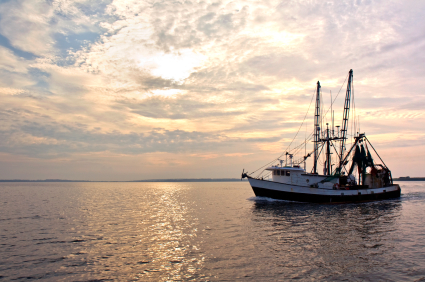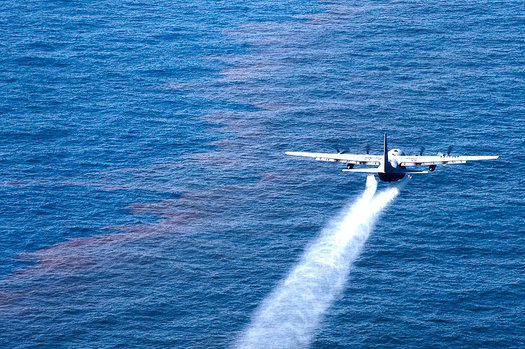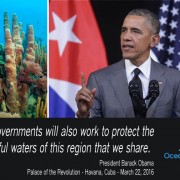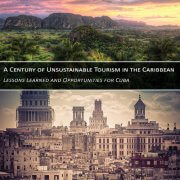A Blueprint of Collaboration ? and Friendship ? with Cuba
 Nearly 60 representatives from Cuba, Mexico and the U.S. convened in Havana in October 2009 to finalize a "Plan of Action" for future collaboration in marine research and conservation focused in the Gulf of Mexico and Western Caribbean Sea |
|
|
HAVANA, Cuba — On October 25-26, 2009 the third meeting of a growing partnership of U.S, Cuban and Mexican institutions dedicated to strengthening collaboration in marine research and conservation convened in Havana, Cuba and has resulted in the near-finalization of a new five-year “Plan of Action,” a blueprint for future collaboration. The ongoing effort, led by The Ocean Foundation, the Center for International Policy, the Cuban Ministry of Science, Technology and the Environment, and the Mexican Secretariat of the Navy has set the stage for an unprecedented level of collaboration among the three nations, including the creation of new projects and partnerships along with additional funding to support them.
The Plan of Action focuses on research and conservation priorities in the Gulf of Mexico and Western Caribbean, priorities considered nearly impossible without the concerted collaboration of all three nations. Because of the U.S. trade embargo imposed against Cuba, participation on the U.S. side has thus far been limited to nongovernmental organizations. The Havana meeting was the largest yet, bringing together a total of nearly 60 participants representing the three countries.
In November 2007, an international conference in Canc?n, Mexico brought together high-level scientists and decision makers from Cuba and the United States for the first time to agree on marine research and conservation priorities. These priorities, covered in detail in the meeting proceedings and summarized below, establish a new framework for collaborative Cuba-U.S. research and conservation activities for the foreseeable future. The Canc?n meeting was covered by the New York Times as the cover story in its Science section: Conserving Cuba After the Embargo and by 1planet1ocean: Historic Meeting Unites Cuba and the U.S., Taking Collaboration on Ocean Research & Conservation to a New Level.
Because of the U.S. economic embargo of Cuba, collaboration between U.S. and Cuban scientists has been difficult. Even though research is a permitted activity and U.S. scientists are allowed to travel to Cuba, the harsh logistical and political realities have prevented all but a few U.S. institutions from maintaining successful collaborative projects in Cuba. Recognizing the critical need for more scientific research in the Gulf of Mexico and Western Caribbean ? and the key role that Cuban waters play in the ecosystem ? the Canc?n meeting brought together major institutions from both countries to establish research priorities and chart a way forward toward stronger and more comprehensive collaborative activities.
 Three members of the Shark Research & Conservation Group discuss the Plan of Action: Left to right: Dra. Consuelo Aguilar Bentacourt (Centro de Investigaciones Marinas, Universidad de La Habana); Dr. Robert Hueter (Mote Marine Laboratory); Dr. Fabi?n Pina Amarg's (Centro de Investigaciones Ecosistemas Costeras, Cuba) |
Scientists from both countries recognize that there is a need to step up collaborative activities in order to more effectively address the growing research and conservation needs of the Gulf of Mexico and Western Caribbean.? It has become especially important to study these areas with a regional perspective in order to understand biological linkages and inform sound conservation policies at a regional level. The principal goal of the November 2007 Canc?n meeting was to establish a set of consensus scientific priorities that would serve as the framework for a plan of action. Six key priority areas were identified and discussed:
- Research and conservation of coral reefs
- Research and conservation of sharks
- Research and conservation of sea turtles
- Research and conservation of marine mammals
- Research, conservation and management of fish resources
- Strengthening of marine protected areas
Working groups were formed around each of these priorities. Recognizing that better international communications are essential to the effort’s success, a committee was also formed to address Internet and telecommunications issues.
Following the successful prioritization process at the Canc?n meeting, the group committed to a follow-up meeting to build on its efforts, transforming the list of priorities into a Plan of Action to identify specific projects and activities designed to advance the priorities. Such a Plan would serve as a road map and planning document for implementing new collaborative efforts.
The follow-up meeting was held successfully in Veracruz, Mexico in March 2009 and broadened the scope of the project to include full Mexican participation. A draft Plan of Action ? based on the priorities established at the Canc?n meeting ? was drafted at the Veracruz meeting and a third meeting would be used to finalize the Plan and begin its implementation.
 Panel Discussion on funding perspectives. Left to right: Steve Cornelius (John D. and Catherine T. MacArthur Foundation); Shari Sant Plummer (Code Blue Foundation; Summit Foundation; Deep Search Foundation); Tom McMurray (The Ocean Foundation); Mark Spalding (The Ocean Foundation) |
The Havana meeting included the participation of members of the U.S. funding community, including the John D. and Catherine T. MacArthur Foundation, the Summit Foundation, Code Blue Foundation and The Ocean Foundation, to provide their perspectives and advice for the finalization of the Plan and ongoing efforts of the partnership. The meeting was coincident with the first-ever joint congress of the Latin American Association of Marine Sciences Investigators (ALICMAR) and the Cuban National Oceanographic Committee (NOC).? This ??double congress,? entitled ColacMarCuba 2009, included the 13th Latin American Congress on Marine Sciences (COLACMAR) and the 8th Cuban Congress on Marine Sciences (MarCuba 2009), held October 26-30, 2009 and included nearly 1,500 participants representing nearly 40 countries.
ColacMarCuba 2009 provided an ideal venue for the project team to meet and take the first concrete steps toward implementation of the Plan of Action by building specific projects and partnerships from the Plan’s identified prioritized actions and activities. The large, diverse audience present at COLACMAR provided an important setting to formally announce the group’s recommendations and planned activities to the international scientific community for the first time, with the hope of building additional partnerships and projects. This special session was presented by Dr. David E. Guggenheim who has organized and led the three conferences. A fourth meeting is in the planning stages for 2010, to take place in Sarasota, Florida.
Participating institutions included:
Cuba: Acuario Nacional de Cuba; Centro de Investigaciones Pesqueras; Centro Nacional de ?reas Protegidas; Centro Nacional de ?reas Protegidas; Ministerio de Ciencia, Tecnologia y Medio (co-organizer); Ministerio de la Pesca; Universidad de La Habana, Centro de Investigaciones Marinas; Centro de Investigaciones Ecosistemas Costeras
Mexico: Centro Interdisciplinario de Ciencias Marinas; Comission Nacional de Areas Naturales Protegidas; Instituto Nacional de Pesca; Instituto Polit?cnico Nacional; Secretaria de Marina (co-organizer); Universidad Nacional Autonoma de M?xico; Universidad Veracruzana
USA: The Ocean Foundation (co-organizer); Center for International Policy (co-organizer); Environmental Defense Fund; Harte Research Institute for Gulf of Mexico Studies; Mote Marine Laboratory; Chicago Zoological Society; The Nature Conservancy
Recent Media Stories About the Havana Meeting:
- Global Post: Can U.S. and Cuba work together to protect shared marine ecosystem?
- Reuters: U.S, Cuban scientists plan joint Gulf research
- NPR: Listen for a special NPR story to air in November/December 2009
|
Photos from the Tri-National Meeting in Havana, October 2009
|





Leave a Reply
Want to join the discussion?Feel free to contribute!